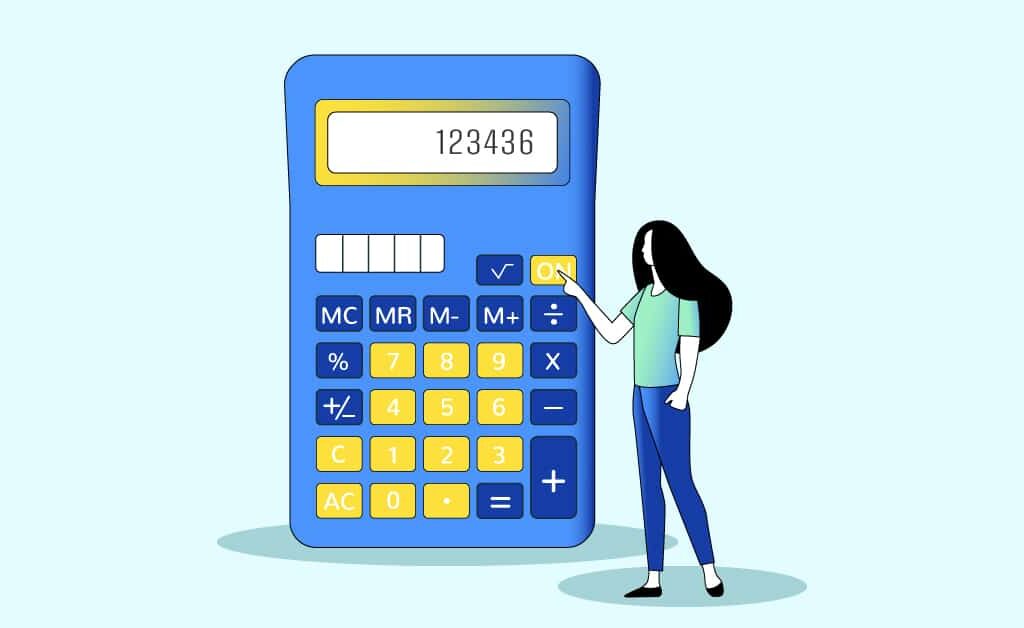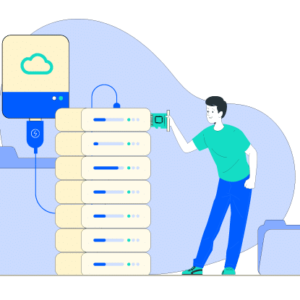
Retail Customer Experience
Retail Customer Experience SHARE THE ARTICLE ON Table of Contents What is Retail Customer Experience? Retail customer experience refers to the overall experience customers have

Find the best survey software for you!
(Along with a checklist to compare platforms)
Take a peek at our powerful survey features to design surveys that scale discoveries.
Explore Voxco
Need to map Voxco’s features & offerings? We can help!
Find the best customer experience platform
Uncover customer pain points, analyze feedback and run successful CX programs with the best CX platform for your team.

We’ve been avid users of the Voxco platform now for over 20 years. It gives us the flexibility to routinely enhance our survey toolkit and provides our clients with a more robust dataset and story to tell their clients.
Steve Male
VP Innovation & Strategic Partnerships, The Logit Group
Explore Regional Offices

Find the best survey software for you!
(Along with a checklist to compare platforms)
Take a peek at our powerful survey features to design surveys that scale discoveries.
Explore Voxco
Need to map Voxco’s features & offerings? We can help!
Find the best customer experience platform
Uncover customer pain points, analyze feedback and run successful CX programs with the best CX platform for your team.

We’ve been avid users of the Voxco platform now for over 20 years. It gives us the flexibility to routinely enhance our survey toolkit and provides our clients with a more robust dataset and story to tell their clients.
Steve Male
VP Innovation & Strategic Partnerships, The Logit Group
Explore Regional Offices

Find the best survey software for you!
(Along with a checklist to compare platforms)
Take a peek at our powerful survey features to design surveys that scale discoveries.
Explore Voxco
Need to map Voxco’s features & offerings? We can help!
Find the best customer experience platform
Uncover customer pain points, analyze feedback and run successful CX programs with the best CX platform for your team.

We’ve been avid users of the Voxco platform now for over 20 years. It gives us the flexibility to routinely enhance our survey toolkit and provides our clients with a more robust dataset and story to tell their clients.
Steve Male
VP Innovation & Strategic Partnerships, The Logit Group
Explore Regional Offices
The response rate calculator plays a pivotal role in determining the validity and reliability of your survey results. Determining the online survey response rate has never been so simple!
Voxco’s response rate calculator enables you to determine if you have a robust and representative sample.

The response rate is a metric that quantifies the percentage of people who participated in your survey out of the total number of people invited to take part. It is represented by a percentage, and the result indicates the engagement of the surveyed population.
Researchers rely on response rates to gauge the effectiveness of their survey and data collection methods.
A high response rate often indicates representative data, while a low response rate introduces biases and compromises the data quality.
Understanding the formula is essential, but the real value lies in how you interpret the results. The acceptable response rate for some industries maybe 30%, while for others, it might be below average. Therefore, it’s crucial to benchmark your response rates against industry standards or past performance.
Calculating the response rate for your survey is a fundamental step in gauging the success and effectiveness of your data collection efforts. This key metric provides insights into the level of engagement and the representativeness of your sample. Follow these steps to accurately determine your response rate:
Number of Responses (R): The total number of completed surveys or responses received.
Number of Invitations (I): The total number of survey invitations sent out

Calculating response rates may sound fancy, but it’s pretty simple. Imagine you invited 200 people, and 50 responded. Your response rate is just the number of responses divided by the number of invitations, times 100.

In this example, the response rate would be 25%, indicating that a quarter of the invited participants completed the survey. Understanding the formula is essential, but the real value lies in how you interpret the results. A response rate of 30% might be considered successful in certain industries or contexts, while in others, it might be below average. Therefore, it’s crucial to benchmark your response rates against industry standards or past performance.
There are two key factors impacting the online survey response rates. These two factors in your survey design process can help you ensure a higher percentage when using response rate calculator after data collection.
The clarity and simplicity of survey questions influences the response rates. Clear and straightforward questions reduce respondent confusion, leading to accurate answers.
To set a standard survey response rate for your brand design short surveys. Alengthy survey can lead to respondent fatigue, whereas, a short survey respects participant’s time.
Use brand identity, skip logic, and interactive questions to make the survey visually appealing and enhance survey experience.
To gain a typical survey response rates, it’s important to have a deep understanding of the target audience’s demographic.
Tailor your surveys to the unique preferences and experiences of your target audience to foster a sense of relevance and inclusivity.
Understanding the significance of response rate calculation is essential for optimizing survey and project outcomes. Here’s why it matters:
Using response rate calculator will tell you the reliability of survey findings after the completion of research. However, it is important to boost your response rates for obtaining meaningful data. Let’s explore effective strategies to enhance your survey engagement:
A well-designed survey enhances respondent experience, leading to higher engagement and response rates.
Tailor your surveys to specific demographics, ensuring relevance and increasing the likelihood of participation and improve response rates.
Offering incentives can increase the likelihood of higher response rates by motivating participant engagement. Leverage a platform that offers multiple incentives to align with respondent’s preferences.
Leverage a survey software that offers multiple channels to share your survey and improve online survey response rates.
Conducting a pilot survey helps identify potential issues and allows for adjustments before wider distribution.
Consider factors likeh holidays, work schedules, and daily routines while deciding when to send surveys. Distributing surveys during periods of high availability and lower stress increases survey response rate.
The frequency of survey distribution can lead to participant burnout. Strategically design the frequency of the survey to maintain participant’s interest, avoid fatigue, and increase response rates.
Personalize survey invitations by addressing the participants by their name. Tailor messages that communicate the importance of respondent’s opinions, and assure data confidentiality, and foster a positive perception of your survey.
Along with the response rate calculator, there are two more tools you should leverage to ensure greater participation.
Online survey tools:
An online survey platform offers various features that can help you design interactive surveys, thus influencing response rates. User-friendly interfaces, interactive questions, skip logic, incentives, and mobile responsiveness contribute to a positive survey experience.
Moreover, a robust survey tool offers automation to streamline tasks such as survey distribution, data collection, and data analysis.
Close-the-loop:
The closed-feedback strategy enables you to send follo-wup communications to respondents demonstrating your commitment to understand their experience and perception.

Retail Customer Experience SHARE THE ARTICLE ON Table of Contents What is Retail Customer Experience? Retail customer experience refers to the overall experience customers have

Data Lifecycle Management – Why is it Important? SHARE THE ARTICLE ON Table of Contents Introduction When you realize how much data organizations collect everyday,
Customer 360 SHARE THE ARTICLE ON Table of Contents What is customer 360? We know that companies now pay more attention to the data management

College Survey Questions: Your Ultimate Guide to Gauging Student Opinions and Feedback SHARE THE ARTICLE ON Table of Contents Colleges and universities are recognizing the

Using Customer Experience Surveys to Design your CX Strategy SHARE THE ARTICLE ON CX Strategy & Management Hub Customer Retention can be a challenge at
Exploring the Pros and Cons of Exploratory Research SHARE THE ARTICLE ON Table of Contents Exploratory research is conducted to improve the understanding of a
We use cookies in our website to give you the best browsing experience and to tailor advertising. By continuing to use our website, you give us consent to the use of cookies. Read More
| Name | Domain | Purpose | Expiry | Type |
|---|---|---|---|---|
| hubspotutk | www.voxco.com | HubSpot functional cookie. | 1 year | HTTP |
| lhc_dir_locale | amplifyreach.com | --- | 52 years | --- |
| lhc_dirclass | amplifyreach.com | --- | 52 years | --- |
| Name | Domain | Purpose | Expiry | Type |
|---|---|---|---|---|
| _fbp | www.voxco.com | Facebook Pixel advertising first-party cookie | 3 months | HTTP |
| __hstc | www.voxco.com | Hubspot marketing platform cookie. | 1 year | HTTP |
| __hssrc | www.voxco.com | Hubspot marketing platform cookie. | 52 years | HTTP |
| __hssc | www.voxco.com | Hubspot marketing platform cookie. | Session | HTTP |
| Name | Domain | Purpose | Expiry | Type |
|---|---|---|---|---|
| _gid | www.voxco.com | Google Universal Analytics short-time unique user tracking identifier. | 1 days | HTTP |
| MUID | bing.com | Microsoft User Identifier tracking cookie used by Bing Ads. | 1 year | HTTP |
| MR | bat.bing.com | Microsoft User Identifier tracking cookie used by Bing Ads. | 7 days | HTTP |
| IDE | doubleclick.net | Google advertising cookie used for user tracking and ad targeting purposes. | 2 years | HTTP |
| _vwo_uuid_v2 | www.voxco.com | Generic Visual Website Optimizer (VWO) user tracking cookie. | 1 year | HTTP |
| _vis_opt_s | www.voxco.com | Generic Visual Website Optimizer (VWO) user tracking cookie that detects if the user is new or returning to a particular campaign. | 3 months | HTTP |
| _vis_opt_test_cookie | www.voxco.com | A session (temporary) cookie used by Generic Visual Website Optimizer (VWO) to detect if the cookies are enabled on the browser of the user or not. | 52 years | HTTP |
| _ga | www.voxco.com | Google Universal Analytics long-time unique user tracking identifier. | 2 years | HTTP |
| _uetsid | www.voxco.com | Microsoft Bing Ads Universal Event Tracking (UET) tracking cookie. | 1 days | HTTP |
| vuid | vimeo.com | Vimeo tracking cookie | 2 years | HTTP |
| Name | Domain | Purpose | Expiry | Type |
|---|---|---|---|---|
| __cf_bm | hubspot.com | Generic CloudFlare functional cookie. | Session | HTTP |
| Name | Domain | Purpose | Expiry | Type |
|---|---|---|---|---|
| _gcl_au | www.voxco.com | --- | 3 months | --- |
| _gat_gtag_UA_3262734_1 | www.voxco.com | --- | Session | --- |
| _clck | www.voxco.com | --- | 1 year | --- |
| _ga_HNFQQ528PZ | www.voxco.com | --- | 2 years | --- |
| _clsk | www.voxco.com | --- | 1 days | --- |
| visitor_id18452 | pardot.com | --- | 10 years | --- |
| visitor_id18452-hash | pardot.com | --- | 10 years | --- |
| lpv18452 | pi.pardot.com | --- | Session | --- |
| lhc_per | www.voxco.com | --- | 6 months | --- |
| _uetvid | www.voxco.com | --- | 1 year | --- |